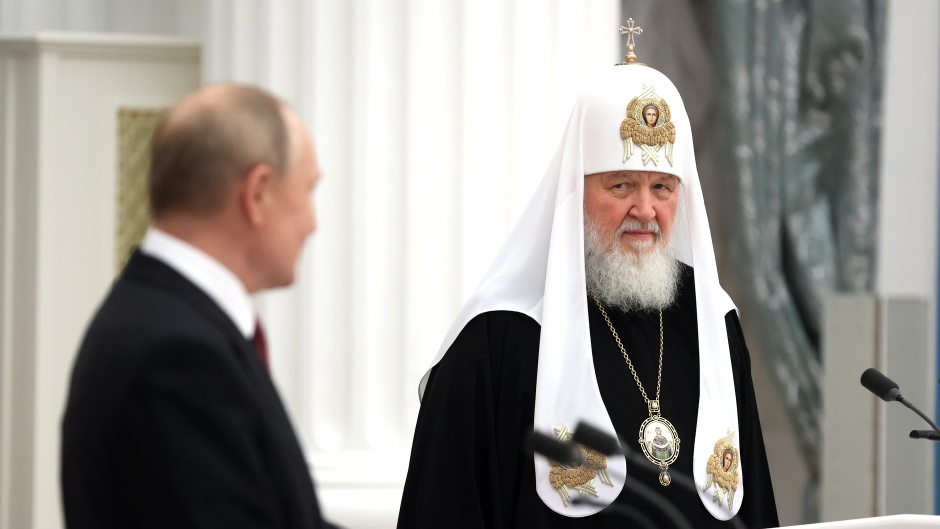International debate on whether the Russian Orthodox Church should be isolated or not
While the UK imposes sanctions on Patriarch Kirill for supporting the war in Ukraine, the World Council of Churches rejects a ban and hopes to see “dialogue and encounter”.
GENEVA · 22 JUNE 2022 · 12:01 CET

Governments in Europe have sanctioned hundreds of powerful supporters of Russian President Vladimir Putin. One of them is the highest authority of the Russian Orthodox Church, Patriarch Kirill.
Lizz Truss, the Foreign Secretary of the United Kingdom, announced last week that her country had sanctioned the Orthodox Church leader for his “prominent support of the Russian military aggression in Ukraine”.
The measure was decided against the “enablers and perpetrators of Putin’s war who have brought untold suffering to Ukraine, including the forced transfer and adoption of children”, the minister added.
Just Announced: I have sanctioned:
Patriarch Kirill, Head of Russian Orthodox Church & vocal supporter of Putin’s war
Enablers & perpetrators of Putin’s war who have brought suffering to Ukrainehttps://t.co/NBBxfwqd5t— Liz Truss (@trussliz) June 16, 2022
The Russian Orthodox Church responded through a spokesperson: “Attempts to intimidate the head of the Russian Church or to force him to abandon his views are meaningless, absurd, and futile”, adding that “the [Russian Orthodox] Church is the last bridge, the means of communication, which they are trying to destroy for some reason”.
The influence of Kirill
Many have underlined the influence of Patriarch Kirill’s views in the start of the Russian invasion of Ukraine and the political development of the war. His promotion of the nationalistic and religious idea of the Russki Mir (in English, “Russian World”), has been seen by religious analysts as a foundation to justify a forced unification of Ukraine and Russia.
Hundreds of Russian Orthodox priests in Russia have expressed their rejection of the role Kirill has had in validating Vladimir Putin’s invasion.
Many in other countries also oppose the views of their religious head. Theodoor van der Voort, an Archpriest in the Netherlands, recently expressed in a dialogue forum the frustration of many Russian Orthodox around the world: “When I heard that he supported this war to save humanity from a so-called sinful and secular Ukraine, I just cried. Kirill so disappointed me. How can someone with his reputation, background and spiritual history lose the way? What possesses him? I can only guess”.
World Council of Churches will not suspend ROC
In this context, the World Council of Churches (WCC), an ecumenical body with a large tradition, has decided not to suspend the membership of the Russian Orthodox Church, rejecting a request made by the Swiss Evangelical Church (EKS, the mainline historic Protestant denomination).
But the WCC governing body condemned “this tragic war”, adding that they “reject any misuse of religious language and authority to justify armed aggression”.
The role of the organisation, the WCC said, is “accompanying its member churches in the region” and serving as a “safe space for encounter and dialogue”. It urged the “members of the ecumenical fellowship in Russia and Ukraine to make use of this platform”.
Published in: Evangelical Focus - europe - International debate on whether the Russian Orthodox Church should be isolated or not
